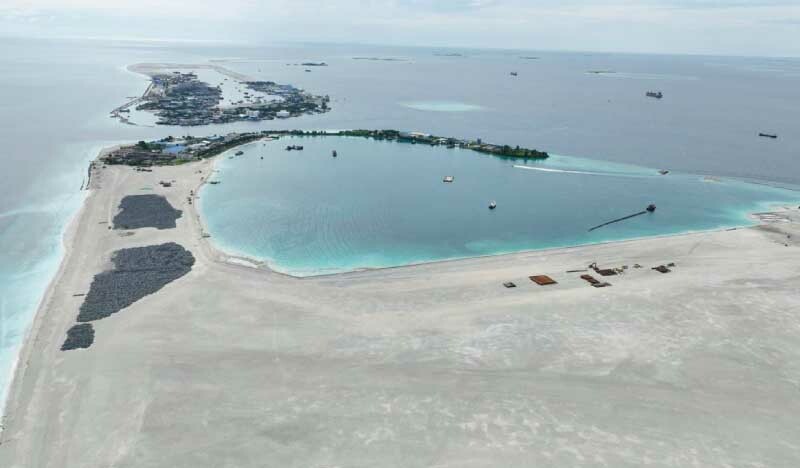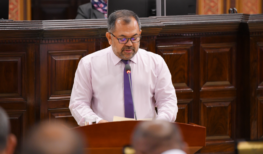Supreme Court Overrules High Court’s Injunction to Halt Gulhifalhu Port Project

Photo: Ministry of Construction and Infrastructure
The Supreme Court of Maldives has overturned a temporary injunction imposed by the High Court to halt the reclamation of Gulhifalhu for the development of a port.
A three-justice bench of the supreme court ruled unanimously to overrule the high court’s injunction issued in February, which was seen as a short-lived win for environmental justice in the Maldives at the time.
The high court’s order was never followed and the project was allowed to proceed, as the Supreme Court issued a stay order on enforcing the injuction citing damages the government had to pay the developer for delays.
The dredging and reclamation phase of the Gulhifalhu Project was completed by the dutch dredging company Boskalis on 15th April.
The matter was first submitted to the civil court by environmental activist Humaida Abdul Ghafoor in 2021.
A three-judge panel, chaired by Justice Ali Rasheed Hussain and comprising Justices Husnu Suood and Azmiralda Zahir, reached a unanimous decision yesterday to nullify the High Court’s injunction completely.
In its ruling, the Supreme Court said the high court failed to consider potential damages to the state in the event of project delays caused by the injunction. State lawyers successfully argued that each day of delay would incur a financial loss of 367,200 Euros (approximately USD 400,000).
Supreme Court reprimanded the High Court for primarily focusing on the plaintiff’s concerns regarding potential harm, without adequately assessing the broader implications for the government. The Supreme Court emphasized the necessity for courts to weigh the “balance of convenience”, taking into account both the harm to the plaintiff and the government’s interests.
The ruling of Justice Ali Rasheed was supported by Justices Azmiralda and Suood, although the latter voiced additional concerns regarding legal and constitutional issues affecting government operations with regard to development projects and environmental protection.
Suood’s opinion raised concern regarding the court’s ability to deliberate on such cases due to limited scientific and socio-economic research on the environmental and economic impacts of reclamation projects.
Additionally, Suood stressed on the need for Environment Protection Authority (EPA) to be made independent and financially sufficient in order to carry out its duties to monitor and prevent damages caused to the environment from development projects.
He also called on the state to carry out a strategic environment assessment to define areas set aside for development and protection so that the country’s natural resources can be preserved for future generations
Furthermore, Justice Suood underscored the importance of incorporating clauses in development contracts to shield the state from liability for delays caused by environmental concerns.







